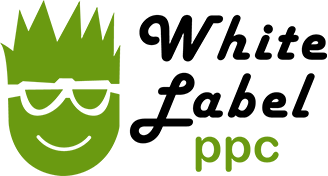The other day a website quickly caught my attention.
The name of it: Nerd Fitness.
The premise of the site is that a guy named Steve, a self-proclaimed “nerd” who likes fitness, helps “desk jockeys, nerds and average Joes” get fit.
It immediately conjures up an image and quickly identifies that Steve is catering to regular people who are either too busy or not inclined to spend X number of hours working out each week.
It quickly draws in his target audience and does it in a very unique way.
In fact, you may have even pictured yourself fitting into one of the three categories of people he helps and thought to yourself “Hey he’s talking about me.”
Steve accomplished this by creating what is called a “unique value proposition.”
What is a Unique Value Proposition?
It’s a statement that succinctly outlines how your business, product or service promises to deliver value differently from that of your competition.
Sometimes referred to as the unique selling proposition or USP, it’s what makes your business the better choice and why your prospects, clients, customers or patients decide to choose you over your competition.
It’s a critical component of your business success. In fact, deciding on your Unique Value Proposition is probably the most important marketing decision you have to make.
It will help you focus your marketing and set you apart. By standing out, it will be much easier to build a big audience. It will be easier to get customers to spread the word about you.
And you won’t have to compete directly in a crowded space…even if you are selling a product or service already commonly bought such as dentistry, shoes or food.
A great definition comes from advertising executive and pioneer of television advertising, Rosser Reeves. In his book, Reality in Advertising, (Alfred A. Knopf, 1961), Reeves says,
“1. Each advertisement must make a proposition to the consumer. Each advertisement must say to the reader: ‘Buy this product, and you will get this specific benefit.’
2. The proposition must be one that the competition either cannot, or does not, offer. It must be unique — either a uniqueness of brand or a claim not otherwise made in that particular field.
3. The proposition must be so strong that it can move the mass millions, i.e., pull over new customers to your product.”
How to create your Unique Value Proposition
To create your unique value proposition for your company, product or service, take some time to explore and identify what makes you different.
Focus on what makes you truly different from what your competition offers. For example, maybe you are the only company that delivers on weekends. Or maybe your teaching style is based on a famous master teacher. To help you find your uniqueness, answer the following six questions:
- What is unique about my product?
- What is unique about my delivery?
- What is unique about my service?
- What industry norms does my company bend or break?
- What is unique about my personality?
- What is unique about my best customers?
Remember that you aren’t trying to appeal to everyone. Equally it’s important to keep in mind that you don’t want to create a Unique Value Proposition that will confuse people. So if you are having a hard time coming up with something, don’t force it. Enlist the help of an expert, ask others what they think makes you unique or revisit the idea periodically, refining it each time.
Once developed, use it as a part of your branding to help make your business memorable so people will clearly know what you are about in the first minute they read your ad, marketing or visit your website. When you do, you’ll find you build a great audience much more quickly.
John
P.S. Do your company have a USP? If not, or if after this exercise you determine you have a new USP, or a better one, be sure to let me know. When your PPC ads line up with your Unique Value Proposition, they will do a much better job of driving traffic to your site. Email me at john@ppcforsmallbiz.com with your Unique Value Proposition.

